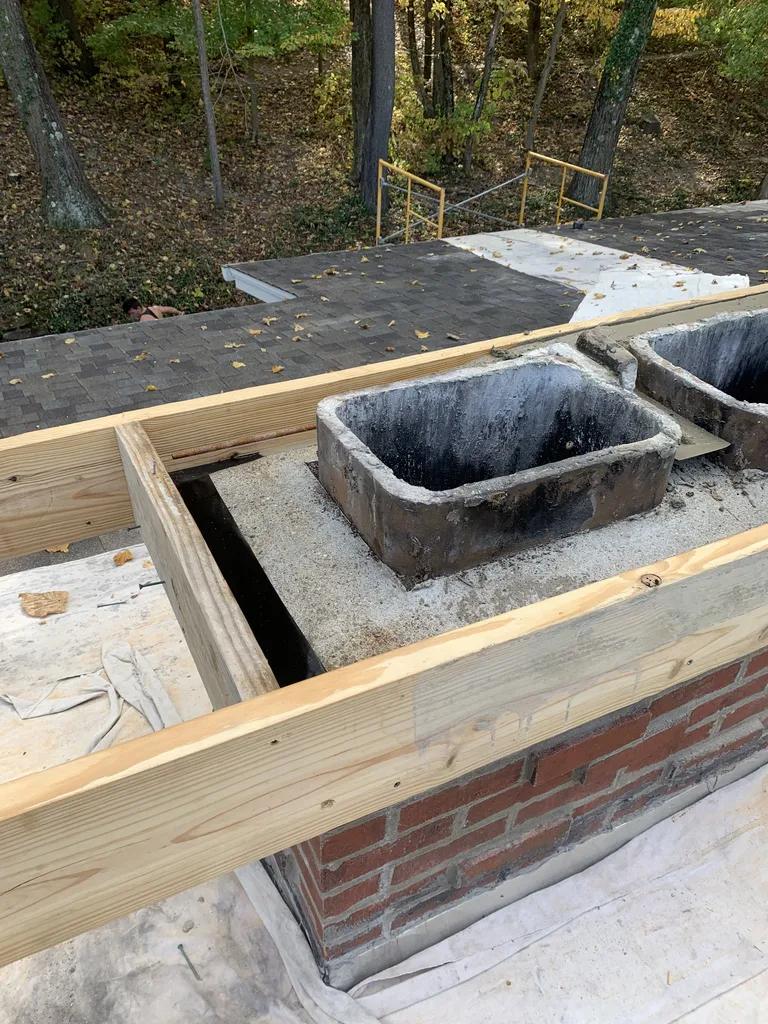Water entering homes through chimneys is a common issue faced by many Georgia residents. This problem can lead to costly repairs and damage to property if not addressed promptly. In this article, we will delve into the causes of water entering through chimneys and provide helpful tips on how to prevent and resolve this issue. Understanding the mechanisms behind this phenomenon is essential for homeowners to protect their homes and maintain their chimney’s integrity.
Table of Contents
- Common Causes of Georgia Water Entering Chimneys
- Impact of Water Ingress on Chimneys and Home Structures
- Preventive Measures to Protect Chimneys from Water Damage.
- Q&A
- In Summary

Common Causes of Georgia Water Entering Chimneys
Water entering through chimneys can cause various issues for homeowners in Georgia. One common cause is a damaged chimney cap or crown, which can allow rainwater to seep down the chimney flue. This can result in water damage to the interior of the chimney, as well as potential structural damage to the surrounding walls.
Another common cause of water entering chimneys in Georgia is a faulty chimney flashing. If the flashing is not properly installed or has deteriorated over time, it can create a pathway for water to enter the chimney. This can lead to leaks in the roof and water damage to the interior of the home. To prevent water damage from chimney issues, it is important for homeowners to inspect their chimneys regularly and address any necessary repairs promptly.

Impact of Water Ingress on Chimneys and Home Structures
Water ingress through chimneys can cause significant damage to home structures, leading to costly repairs and potential safety hazards. One of the main impacts of water entering through chimneys is the deterioration of the masonry and structural integrity of the chimney itself. Over time, water can penetrate the mortar joints, causing them to weaken and deteriorate. This can result in bricks becoming loose or even falling out, posing a risk of chimney collapse.
Furthermore, water ingress through chimneys can also lead to damage to the interior of the home. Leaks caused by water entering through the chimney can result in water stains on ceilings and walls, as well as mold and mildew growth. In severe cases, water infiltration can even cause structural damage to the home, affecting its overall stability. It is essential for homeowners to address water ingress issues promptly to prevent further damage and ensure the safety of their home.

Preventive Measures to Protect Chimneys from Water Damage
One of the most common issues facing homeowners in Georgia is water entering through chimneys. This can lead to a host of problems, including structural damage, mold growth, and deterioration of the chimney itself. To prevent these issues, it is crucial to take proactive measures to protect your chimney from water damage.
- Install a chimney cap: A chimney cap is a simple and effective way to keep water from entering your chimney. It also helps to prevent birds, animals, and debris from getting inside.
- Inspect and repair the chimney flashing: The flashing around your chimney can deteriorate over time, leading to leaks. Make sure to inspect it regularly and repair any damage promptly.
- Check for cracks in the mortar: Cracks in the mortar joints of your chimney can allow water to seep in. Have any cracks repaired by a professional mason to prevent water damage.
| Preventive Measure | Importance |
|---|---|
| Install chimney cap | Keeps water, animals, and debris out |
| Inspect flashing | Prevents leaks |
| Repair mortar cracks | Prevents water seepage |
Q&A
Q: What is the issue with Georgia water entering through chimneys?
A: The issue with Georgia water entering through chimneys is often caused by heavy rainfall or stormy weather, leading to leaks and water damage in homes.
Q: How can water entering through chimneys impact the home?
A: Water entering through chimneys can cause extensive damage to the interior of the home, including walls, ceilings, and floors. It can also lead to the growth of mold and mildew, which can pose health risks to residents.
Q: What are some common signs of water entering through chimneys?
A: Common signs of water entering through chimneys include water stains on walls or ceilings, musty odors, and visible water dripping down the chimney into the fireplace.
Q: How can homeowners prevent water from entering through chimneys?
A: Homeowners can prevent water from entering through chimneys by ensuring that their chimney is properly capped and sealed. Regular maintenance and inspections by a professional chimney sweep can also help identify and address any potential issues.
Q: What should homeowners do if they suspect water is entering through their chimney?
A: If homeowners suspect that water is entering through their chimney, they should contact a professional chimney sweep to assess the situation and recommend the necessary repairs. It is important to address water damage promptly to prevent further issues.
In Summary
In conclusion, it is crucial for homeowners in Georgia to be aware of the issue of water entering through chimneys and take preventative measures to protect their homes. By understanding the potential causes and consequences of this issue, individuals can work to ensure the integrity of their chimney structures and maintain a safe and secure living environment. We hope that this article has provided valuable insights and information on how to address and mitigate the risks associated with water intrusion through chimneys. Stay informed, stay proactive, and safeguard your home against the threat of water damage.


